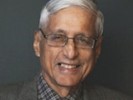In the early 1880s in Rajkot, where Mohandas’s influential father Karamchand Gandhi sent his youngest son to the English-medium Alfred High School, the boy ran into three impassioned short lines by Byron that he could not forget: “For Freedom’s battle once begun, bequeathed by bleeding sire to son, though baffled oft is ever won.”
About 60 years later, on May 21, 1943, when Gandhi was the Empire’s prisoner in Pune for having launched Quit India, he recalled those timeless lines in a letter to home secretary Reginald Maxwell in Delhi. I should add that this letter too became a classic text of argument and smiling defiance.
In the 1880s, young Mohan hadn’t been shielded from stormy thoughts. His counterparts today, the adolescents or young adults of free India, are more fortunate. They’re going to be protected! As is now widely known, NCERT’s current advisers have expunged dangerous stuff that was being carelessly taught across all schools using texts, even in the school year that has just ended.
Justifying the latest removal but shifting responsibility to unnamed “experts”, the NCERT director, Dinesh Prasad Saklani, raised this question when PTI interviewed him: “Why should we teach students about riots?” Saklani added that a textbook’s aim was not to “create violent, depressed citizens” but “to give out facts”. “Hatred, violence are not the subjects of teaching in school,” he went on to say. Among the lines now deleted from the history text for senior students were a few that mentioned the forcible removal in 1992 of Ayodhya’s Babri Masjid. As also other lines that conveyed the Supreme Court’s description of that removal as an “egregious criminal act”, even as our top court authorised the construction of a temple on the site where the masjid had stood.
Under the theory, presumably, that only “facts should be given out”, it seems the cleaned history text will no longer speak of any masjid in Ayodhya but only of “a three-domed structure” that existed until 1992. Also apparently erased from the students’ book is the observation that in 1949 New Delhi had pressured the Northeast’s Manipur kingdom to merge into the Indian Union. A year ago, the truthful (and irrefutable) remark that Mahatma Gandhi’s assassination had been connected to his efforts for Hindu-Muslim unity was among the deletions from the history textbook. By 2025, we are informed, the teaching of history to youngsters in their last two years of school will see a more complete tidying up, which a committee of specialists has evidently been working at for some time.
Stuffed with edited and safe “facts”, and protected in their classrooms from images of riots, India’s school-leaving youngsters will march forward to a grand future, which will include (of course!) global leadership provided by Indians. As to who protects these children of ours from violent sights on their way to and back from school, or indeed at home, or on videos they see on their phones, or in what they view on the internet, well, overworked, high-ranking officers shouldn’t be troubled with irritating questions of this sort. In any case, the insertion in textbooks of political agendas is planned elsewhere.
A real question must yet be asked. Since none can deny the growing global demand for Indian hands and minds, albeit a demand that is vastly exceeded by its supply, who will ensure that these minds and hands attain their maximum skills? Related short question requiring no answer: Is textbook censorship a step towards such a goal?
To the main question, the short yet hard reply is surely this. The people of India, including their teachers or leaders in different spheres, must themselves perform the heavy task. While there’s no magic pill, there’s potency in two mighty sources. One, our Constitution, which asks the state and all its functionaries, and indeed all citizens, to nudge Indian society towards greater equality, greater individual liberty, a greater respect for everyone’s dignity, and greater rationality.
The second powerful source of energy is our common culture or spirit. All the different religious and intellectual traditions which over time have become India’s traditions — whether Hindu, Islamic, Christian, Sikh, Buddhist, Zoroastrian, or whatever — all of them foreground compassion, or the urge to assist anyone in need.
Possessing access to these two engines, our culture and our Constitution, why shouldn’t the Indian people summon confidence as they confront tough internal and external facts? Isn’t this the only way forward? Any idea that if we can only wash away “false” images of our riots and disunities we would be launched on the flight to greatness is a delusion.
Should we be surprised that political science textbooks too are being “updated” or “cleansed” or revised? Some media platforms have informed us that the revised books will tell students that certain political parties have twisted the Constitution’s secularism in order to practise vote bank politics and minority appeasement.
This curtain-raiser that political science textbooks for our school students will highlight “minority appeasement” prodded me to look somewhat closely at the recent Lok Sabha results in states where Muslims have a significant presence. Here’s what I found. Jammu and Kashmir (currently a Union territory) has a large Muslim majority. Three of the five MPs J&K has chosen are Muslims. In Assam, the Muslim percentage (2011 Census) is 34. Of Assam’s 14 freshly chosen MPs, one (slightly over 7%) is a Muslim. West Bengal (27% Muslim in population) has six Muslim MPs out of 42, a representation of slightly over 14%. Uttar Pradesh, where Muslims form 19% of the population, has elected five Muslims out of a total of 80 MPs, i.e. a share of a shade over 6%. Bihar, where Muslims are 17% of all Biharis, has elected two Muslim MPs out of a total of 40, i.e. a 5% representation.
India’s second most populous state, Maharashtra, elects 48 Lok Sabha MPs. Twelve per cent of its people are Muslims. This state has not sent a single Muslim to the 18th Lok Sabha. Kerala (27% Muslim, like West Bengal) sends 20 MPs to New Delhi. Three of them, i.e. 15%, are Muslims. This is the outcome after decades of the “minority appeasement” supposedly practised by secular political parties. Such are the “alarming” levels to which “appeasement” has taken Indian politics.
Distinguished scholars Yogendra Yadav and Suhas Palshikar, who’ve been the chief advisors for NCERT’s political science books, have demanded the removal of their names from these books. Saying that even a year ago the textbook produced was not quite the one to which they had contributed, the two have declared that they would sue if their names remain.
Rajmohan Gandhi’s most recent book is Fraternity: Constitutional Norm and Human Need (2024). The views expressed are personal





















 Toi Staff
Toi Staff Mohamad Elmasry
Mohamad Elmasry Maoz Inon
Maoz Inon Belen Fernandez
Belen Fernandez Rachel Marsden
Rachel Marsden Patrick Gathara
Patrick Gathara Brahma Chellaney
Brahma Chellaney Srecko Horvat
Srecko Horvat Petra Lesjak Tušek
Petra Lesjak Tušek Julie Bindel
Julie Bindel
